Buick Roadmaster classic cars for sale
The Buick Roadmaster stands as a benchmark of American full-size luxury from the 1930s to the 1990s, combining powerful engines, bold design, and advanced equipment for its time. Available as saloon, coupé, convertible or estate, the Roadmaster defined Buick’s status in the upper mid-class segment. Discover unique vehicles with extensive comfort features and strong road presence.
Résultats de la recherche
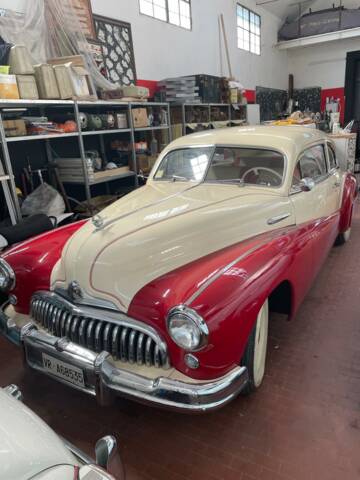
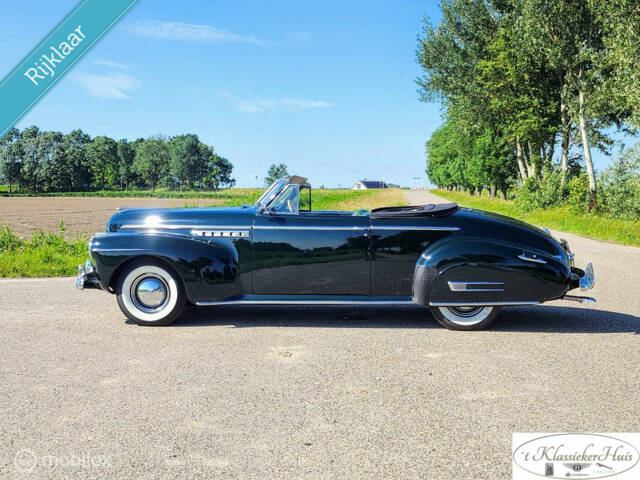
1941 | Buick Roadmaster Serie 70
Buick Eight Roadmaster cabriolet
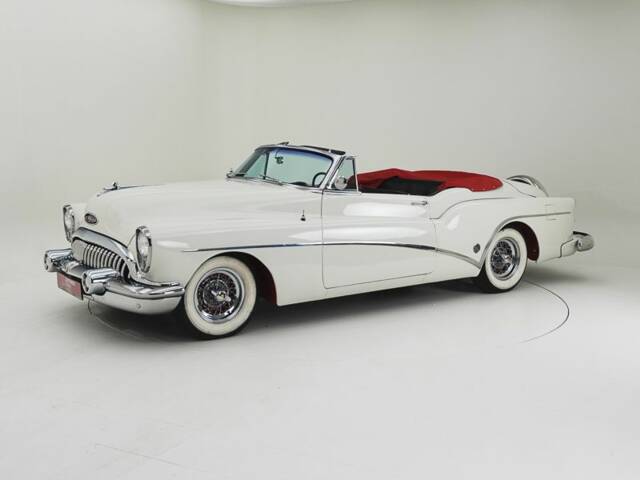
1953 | Buick Roadmaster Skylark
1953 Buick Roadmaster 2-Door Skylark Convertible '53
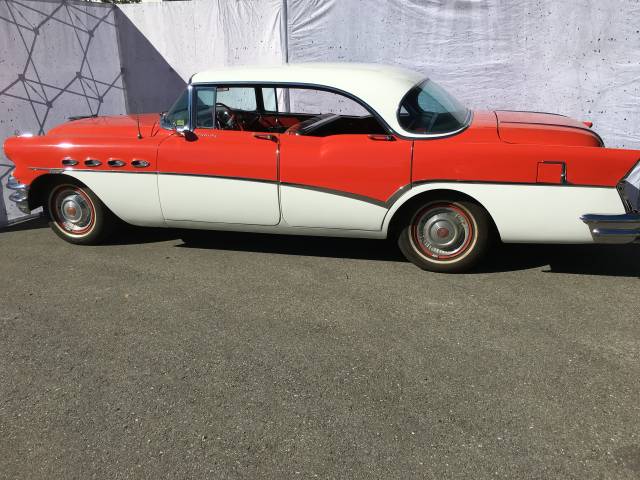
1956 | Buick Roadmaster
Elegante cruiser in contemporary two-tone paint finish
Buick Roadmaster listing references from Classic Trader
Below you will find listings related to your search that are no longer available on Classic Trader. Use this information to gain insight into availability, value trends, and current pricing for a "Buick Roadmaster" to make a more informed purchasing decision.
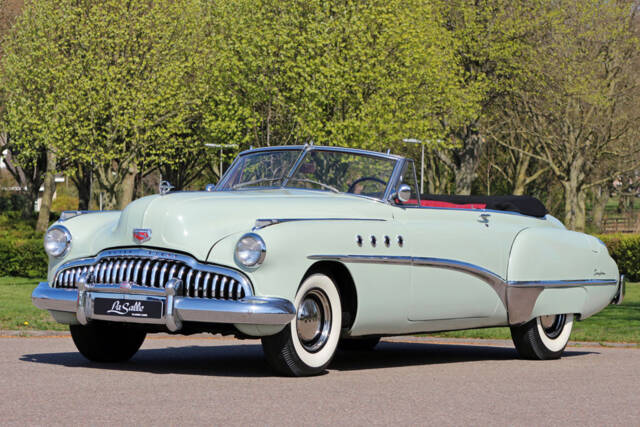
1949 | Buick Roadmaster
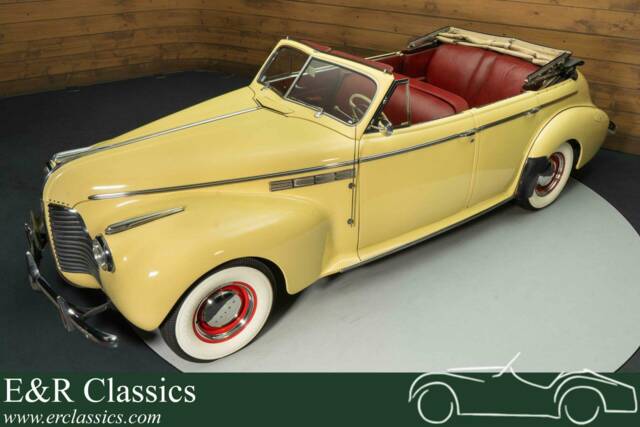
1940 | Buick Roadmaster Serie 70
Buick Roadmaster 8 Cabriolet
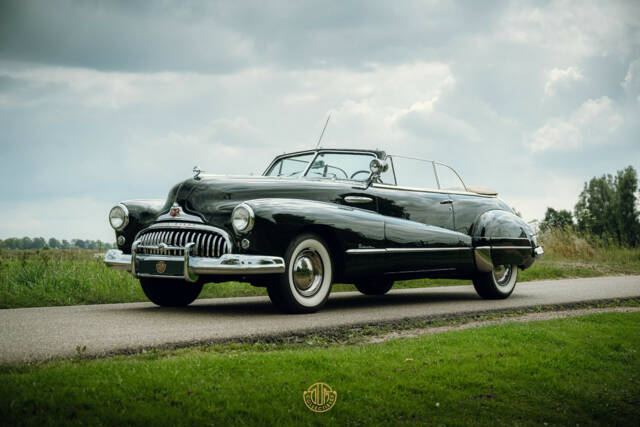
1948 | Buick Roadmaster
Buick Roadmaster 76C Fisher Body Convertible
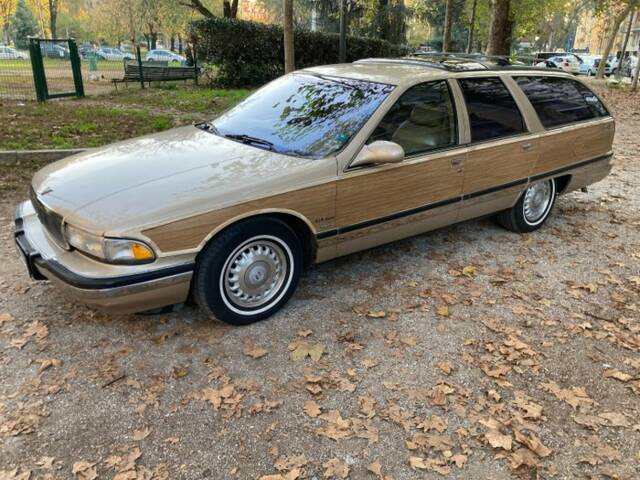
1996 | Buick Roadmaster Estate V8
Buick - Roadmaster Estate Wagon Limited - NO RESERVE - 1996
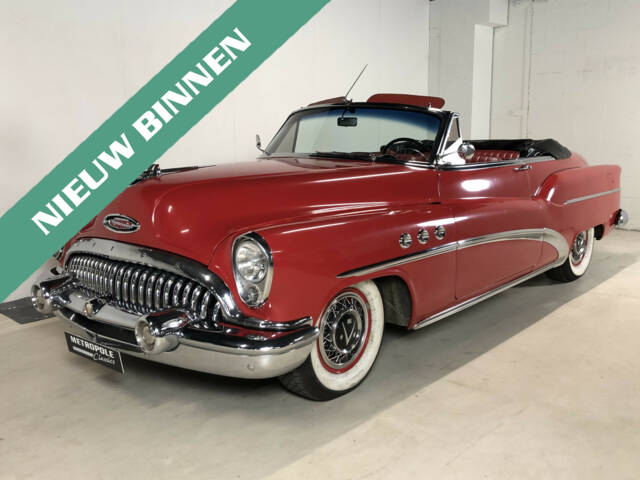
1953 | Buick Roadmaster Skylark
Buick Roadmaster Super Eight M0879
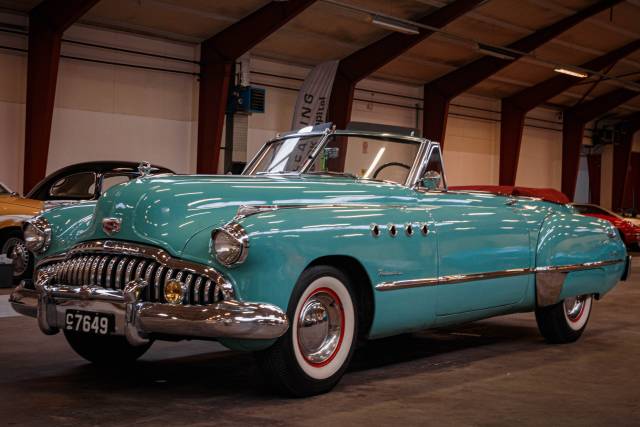
1949 | Buick Roadmaster
A Timeless Masterpiece!
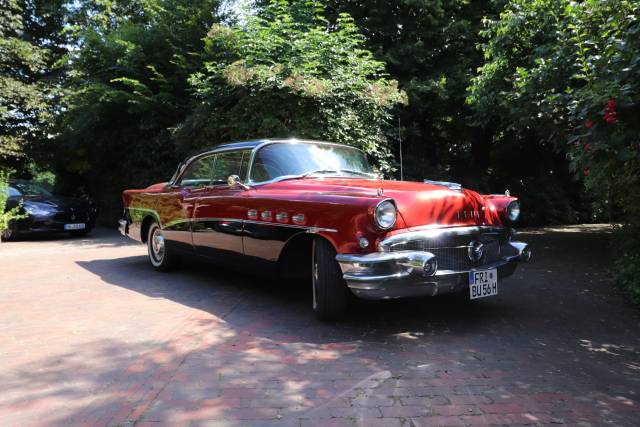
1956 | Buick Roadmaster
4-Door Riviera Sedan Hardtop Dynaflow
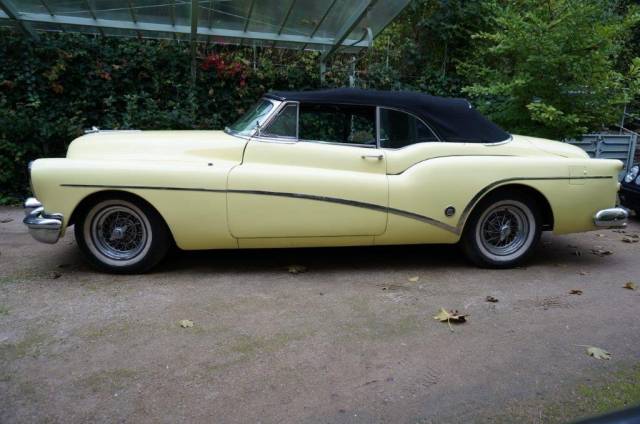
1953 | Buick Roadmaster Skylark
Das Hemmingway Cabrio
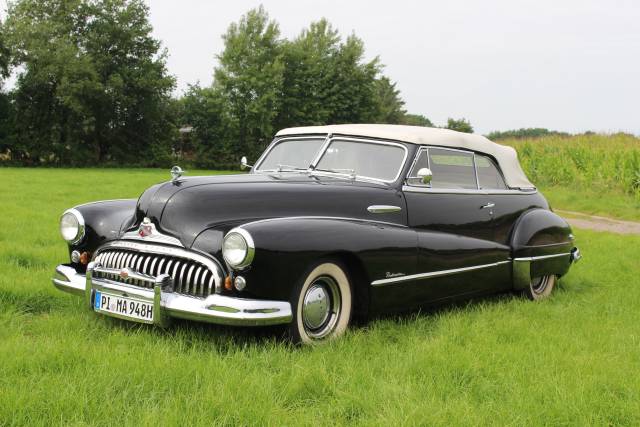
1948 | Buick Roadmaster
Wer gönnt sich diesen Schatz ?
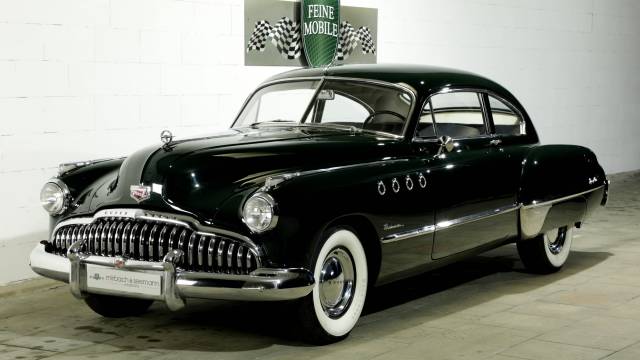
1949 | Buick Roadmaster
Dynaflow
Buick Roadmaster Classic Cars: Prices & Market Values
History of the Buick Roadmaster
The Buick Roadmaster, introduced in 1931 initially as Series 80, became one of Buick's most prestigious models and a symbol of the brand's technological progress. From 1936, the Roadmaster name adorned Buick's long-wheelbase vehicles and quickly earned a reputation for comfort, advanced engineering, and a competitive price-performance ratio. Interrupted only by World War II, production ran from 1936 to 1958 and resumed from 1991 to 1996. Particularly in the post-war era, the Roadmaster served as Buick’s top-of-the-line model, influencing the design language and equipment standards for American luxury cars. Its imposing dimensions, lush use of chrome, and technical features like automatic transmission and air conditioning reflected the evolving tastes and expectations of American motorists.
Model History
The Roadmaster's evolution is marked by seven distinct generations. Initially launched as a successor to the Series 129, the first generation (1931–1933) was powered by an inline-eight engine. The second generation (1936–1939) further refined performance and expanded body styles, including four-door limousines and phaetons. The post-war third and fourth generations (1940–1958) embraced design trends like the torpedo body and the hallmark VentiPorts on the wings, moving from the straight-eight to the robust 5.3-litre V8 in 1953. The fifth generation introduced the automatic Dynaflow transmission and ever-deeper integration of advanced comfort features. After the Roadmaster was replaced by the Electra in 1958, Buick revived the name for a modern full-size rear-wheel-drive saloon and estate from 1991 to 1996, maintaining the traditions of space and comfort that defined the earlier models.
Highlights and Statistics
The Roadmaster is renowned for its expansive interior, robust V8 engines, and technical sophistication. Iconic features include the VentiPorts, automatic Dynaflow transmission (from about 1949), and an array of electric comforts such as power windows and adjustable seats. The 1950s models—especially the cabriolets and elegant Riviera coupés—stand out with two-tone paint, lavish use of chrome, and details like the toothy front grille. Hydraulically operated convertibles and foot-operated radios speak to Buick’s focus on comfort and innovation. With seating for up to six people and imposing proportions, the Roadmaster set benchmarks for American luxury motoring.
On the Classic Trader platform, the Roadmaster Serie 70 dominates supply (61.1% of listed Roadmasters) and accounts for more than 70% of Roadmaster-related listing views—demonstrating a clear preference among enthusiasts and collectors for this specification. The Serie 70 76X follows distantly in both supply and demand (13–14%), with cabriolets and special models forming niche but desirable segments.
Technical Data
Special Editions and Collectible Models
The 1953 Buick Roadmaster Skylark convertible, produced as part of Buick’s 50th anniversary celebration, stands out for its limited production and bespoke detailing, making it highly sought after among collectors. The 1958 Riviera edition also marks a milestone, designed to commemorate General Motors’ half-century, and combines luxury with exclusive finishing touches. In the 1990s, the armoured estate adapted for the Canadian Prime Minister demonstrates the model’s adaptability and prestige even in state use.
Weak Spots and Common Issues
While the Roadmaster is engineered for durability, attention should be paid to the condition of the Dynaflow automatic transmission, which can be prone to leakage or sluggish shifting with age. Rust on frame and body panels, worn-out suspension bushings, and ageing complex electric window and seat motors are potential weak spots. As with most US classics, parts are generally available, but restoration of interior trim or rare convertible mechanisms can be costly.
Engine, Transmission & Driving Experience
Roadmasters from the 1950s offer plush long-distance comfort, with the V8 delivering smooth, ample power and the Dynaflow transmission providing effortless acceleration. The vehicle’s significant size and soft suspension make it ideal for highway cruising but less nimble on tight roads. Later versions (post-1991) maintained the RWD layout and robust V8s, further improving high-speed stability and interior comfort. Notable Roadmasters include the fifth generation convertible (Skylark, ca. 330 hp in the top model), the Serie 70 saloons, and the Riviera coupé with its distinctive grille and luxury appointments.
Interior, Comfort and Design
Design evolution is evident in the Roadmaster’s curvaceous silhouette, expansive use of chrome, and classic two-tone paint options. The signature VentiPorts on the front wings distinguish full-size Roadmasters from other Buicks. Interiors featured leather or silky nylon seat trim, power window lifts, foot-operated radio controls, and large, comfortable seating for 5–6 people. Cabriolets boasted electro-hydraulic roofs and rich chrome detailing, while later estate cars brought family-friendly innovation. Accessory options often included chrome wire wheels, upgraded radio equipment, and two-tone dashboards. Attention to comfort proved paramount: electric seat adjustment, power windows, and, in some models, fully automatic heating and air conditioning were available.
Further Information
The Buick Roadmaster made its mark in Europe mainly through private collectors. Most examples found today carry historic plates and have benefited from dedicated restoration. Uniquely American details—like the deliberately oversized design, left-hand steering, and the focus on comfort and presence—make Roadmasters a statement in any classic car context.
Summary
The Buick Roadmaster epitomises the evolution of American full-size luxury from the 1930s through the 1990s. With distinctive style elements, impressive dimensions, advanced technical features, and an unmistakable presence, it stands as a reference point for enthusiasts seeking authentic US motoring history. Its strong demand and supply figures on the market confirm ongoing interest from collectors and classic car fans alike.



